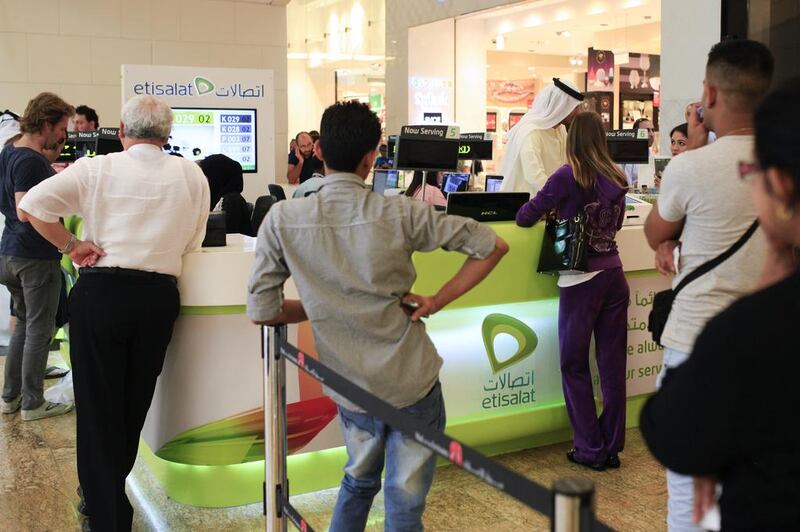The index complier MSCI will add Abu Dhabi-based Etisalat to its Emerging Markets Index at the end of this month. The move comes after the telecoms operator in September allowed foreign investors to own the blue-chip stock.
MSCI did not say what Etisalat's weighting would be. The UAE and its stocks were incorporated into MSCI's Emerging Markets Index in June last year after they were upgraded from their previous frontier markets designation in 2013.
“We can suspect that Etisalat shares will outperform the market in the coming days and weeks, before the stock is included in the benchmark,” said Sebastien Henin, head of asset management at the Abu Dhabi-based investment firm The National Investor.
“We expect a lot of foreign investors will take a position for sure in Etisalat.”
Etisalat, the biggest telecoms operator in the country, joins nine other UAE companies in the index: Abu Dhabi Commercial Bank; Aldar Properties; Arabtec; DP World; Dubai Financial Market; Dubai Islamic Bank; Emaar Properties; FGB; and National Bank of Abu Dhabi.
The MSCI Emerging Markets Index is down 20.2 per cent since the UAE companies joined. The drop has come amid a stock market rout in Asia, particularly China.
Etisalat’s inclusion in the index will lead to passive inflows of $360 million, according to Egypt’s largest listed investment bank EFG-Hermes and $460m, according to estimates by the Dubai-based financial services firm Arqaam Capital.
Etisalat moved in September to allow foreign investors to own up to 20 per cent of its shares. But the foreign investors in Etisalat do not have voting rights, as the UAE government, which owns 60 per cent of Etisalat, wants to retain firm control of the company.
Mr Henin does not expect the voting rights issue to affect foreign investment in the stock, which is listed on the Abu Dhabi Securities Exchange.
Shares of Etisalat are up 55.2 per cent in the year to date, although the firm recently reported an 8.6 per cent drop in third-quarter net profit as forex losses and a higher royalty to the government ate into earnings.
dalsaadi@thenational.ae
Follow The National's Business section on Twitter






